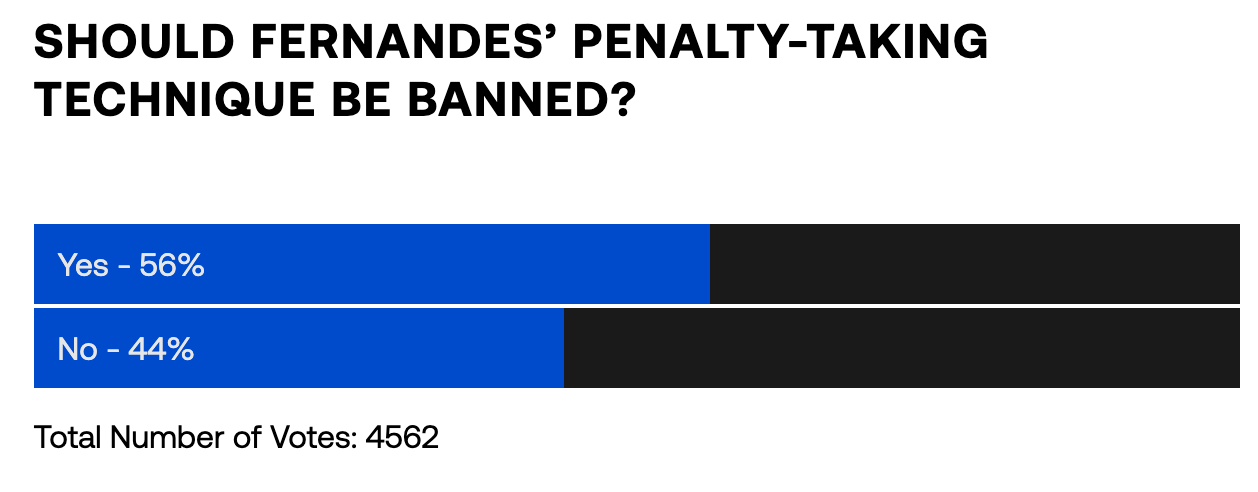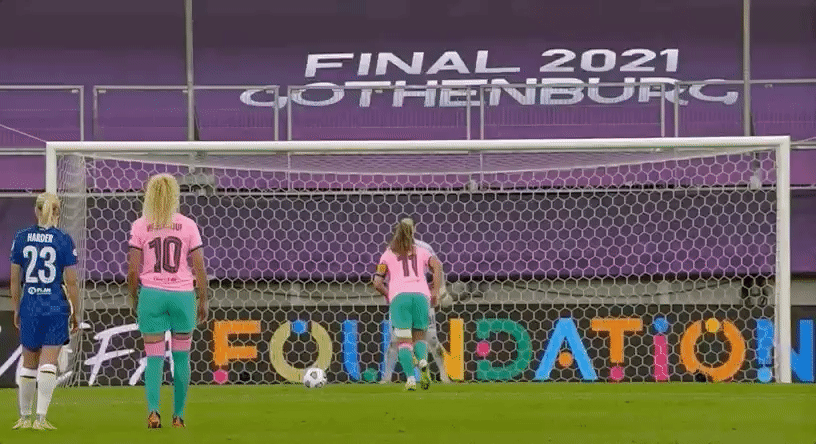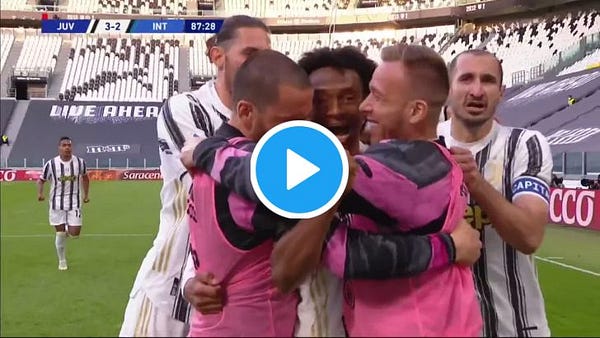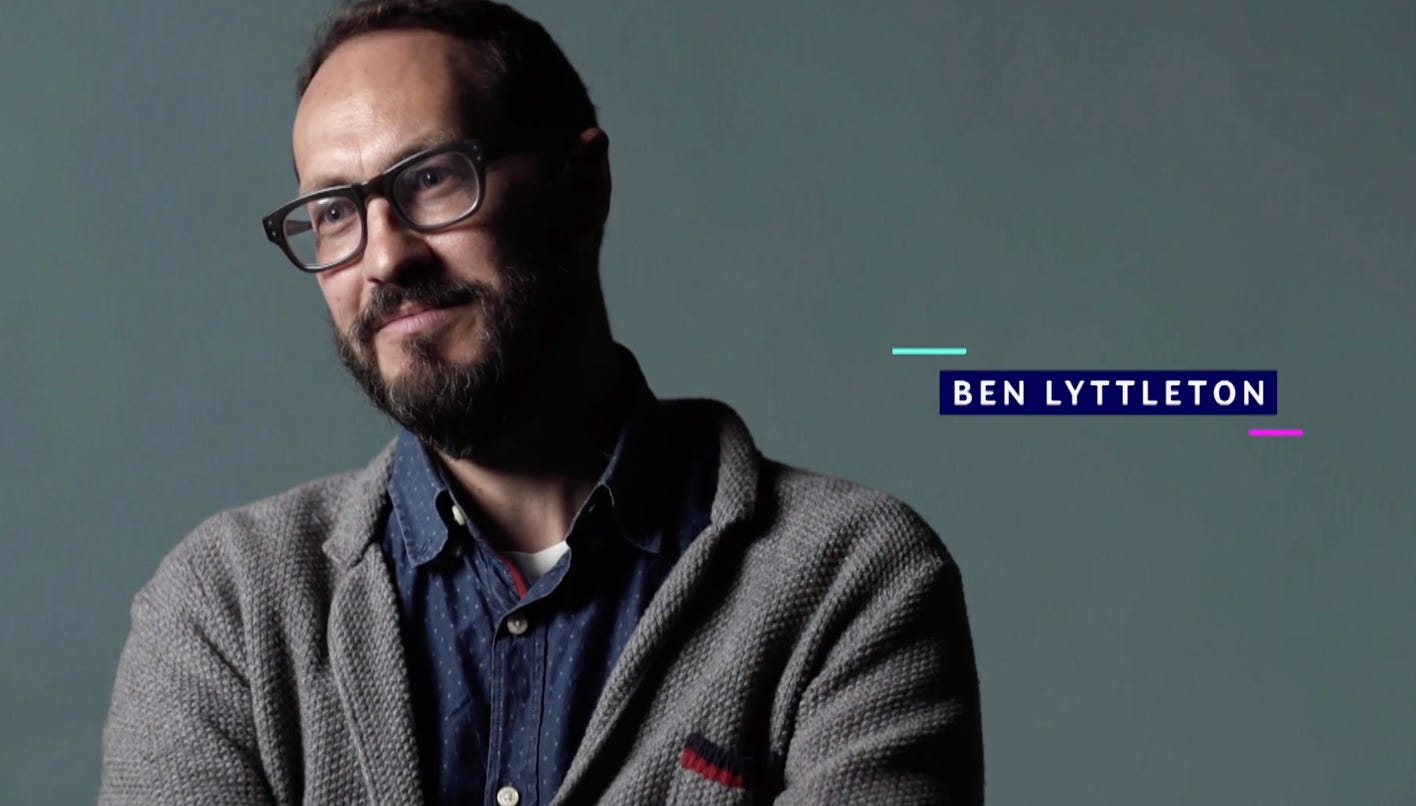With Manchester United playing in the Europa League final next week, it’s time to talk about Bruno Fernandes. Since joining United in January 2020, he is 21/22 in penalty conversion, and 13/14 for this season. He helped United overcome a sticky spot-kick scenario last season when Marcus Rashford, Paul Pogba and Anthony Martial all missed penalties. Now, Fernandes is the undisputed number one at United – and possibly in the world. Let’s look at how he does it.
Photo: AP
Most penalty-takers prefer one distinct strategy, either GK-Dependent (waiting for the GK to move first) or GK-Independent (picking a spot and smashing it there). The interesting thing about Fernandes is that he regularly swaps strategies. And more than most players, he is happy to discuss his technique from the spot.
He scored eight penalties for United in his first season – you can see them all in this video – and out of those, four were kicked GK-Dependent (against Watford, Brugge, Leicester and Sevilla) and four were GK-Independent (against Spurs, Aston Villa, Chelsea, and FC Copenhagen).
Fernandes breaks down his decision-making process around penalties in a fascinating interview on the Nike website. First of all, he makes sure he is relaxed, and for that, he needs to have the ball in his hands. Holding the ball is an important part of his routine; he then waits for the box to clear, concentrates on his breathing, and gets focused. Then, he decides which strategy to use:
“I have different ways to take [penalties]. It depends how confident I am, how confident I feel the keeper is, how the game has gone for me, a lot of things. It mostly depends on what I feel from the videos I see from the coach and what I can do to have more chance of scoring. Before the game I watch the keeper with our goalkeeper coach and he gives me advice on whether he jumps more to the left or right, if he is better on the ground or if the ball goes up. I take the abilities of the keeper [into consideration] and try to hit the right part of the goal.”
This video shows how he uses both techniques to his advantage:
The reason behind his penalty skip, when he hops during his run-up and lands his standing foot next to the ball, is purely to optimise his chances of scoring. He used to skip three steps before reaching the ball, and then would look down at the ball. At that point, he couldn’t see the goalkeeper’s movement. By skipping closer to the ball, he is ensuring that the goalkeeper is always in his eyeline.
"I used to take my step and then look down and then you don't see any more of the goalkeeper. So I started improving on this situation because I think it is better for me. When I give a jump, I already know where the ball is so that is the moment to look at the keeper and try to put him on the wrong side.”
The skip is not to everyone’s taste. Last November, Fernandes had an effort saved by WBA goalkeeper Sam Johnstone, only for it to be retaken after VAR ruled he’d overstepped his line. Fernandes scored the second effort. Johnstone tweeted after the game: ‘A striker shouldn’t be able to hop, skip and jump before kicking it.’


Ian Wright offered his support, requesting a new law declaring: “You have to go straight through your penalty run-up, no jumping.” In a poll of over 4,500 fans on Eurosport, 56 per cent said Fernandes’s jump should be banned. Not United fans, then!
What is it like for a goalkeeper facing a Fernandes penalty? Thanks to United’s third-choice goalkeeper Lee Grant, we know. He told The Athletic:
“Usually, I'm already forming an opinion about where the penalty-taker is going to put the ball after the first or second step of their run-up. I'm looking at their body shape, the angle they are coming in, and that's when I make my decision. With Bruno, though, it's almost impossible to read his body language. His penalty technique is really like no other. I told him afterwards how difficult it was to read what he was going to do. It made him laugh.”
Karl Darlow has a different experience. The Newcastle goalkeeper is the only player to have kept out Fernandes since he moved to England. That happened last October, in United’s 4-1 win. Fernandes congratulated Darlow after the game and received a message from his dad that said: ‘Tomorrow I will explain to you how to take penalties!' Fernandes’s response? "I was like: 'Hey, I've missed one penalty in 11 and he's talking to me about this,' because he never scored a penalty in all the years he was playing football!”
What can a goalkeeper do then? Former Loures goalkeeper Miguel Soares, who saved a Fernandes penalty in October 2018, has an idea:
“The secret was the small movement I made to the left. Bruno looks at the keeper when he takes a penalty, so I did the same to him. I feigned to dive to the left, and went to the right. I wanted to make Bruno take his decision as late as possible.”
And so where does Fernandes rank in the United list of penalty-takers - for Premier League penalties only? Unsurprisingly, right at the top. Here is the list (only includes players with more than 10 scored):
With that record, you’d expect Fernandes to be first in line whenever United are awarded a penalty. And you’d be almost right. In an interview with United Review he did suggest that he’d be happy for other players to take a penalty ahead of him:
“It doesn’t matter if I take penalties. We have a lot of qualities in the team, like I’ve said before. I already talked with some players. Rashy was the guy who took the penalties so I tell him:, 'When you feel confident, if you want to take the penalty, for me, it is not a problem.' I will not fight.”
I checked United’s other penalty-scorers this season to see if any had taken spot-kicks while Fernandes was on the pitch. Juan Mata scored against Luton; no Fernandes. Martial scored against RB Leipzig; no Fernandes. Rashford scored against Baseksehir and… hang on! Fernandes was on the pitch. And he’d already scored two goals. He was on for a hat-trick and he let Rashford take the penalty. He explained the decision after the game:
"Of course, every player wants a hat-trick. But after the game in the Premier League [against WBA] I told Rashford that he could take the next one so I remembered that and also he's one of the top scorers in the Champions League so it's important for him to get the confidence. It doesn't matter who takes the penalty as long as the team scores.”
If United gets a penalty in the Europa League final, there’s only one player fans would want taking it. But that’s Fernandes for you. Top player, top penalty-taker… and top team-mate!
PEN PALS:
Alexia Putellas makes no mistake from the spot, putting Barcelona Femeni 2-0 up in their 4-0 Champions League final win over Chelsea. Her technique, kicking left-footed, GK-Independent and to her non-natural side, is enough to beat Chelsea GK Ann-Katrin Berger, who had kept out three spot-kicks in Chelsea’s run to the final – two against Atletico Madrid and one against Wolfsburg.
PSG wins their French Cup semi-final against Montpellier after a penalty shoot-out which finishes 6-5. There is plenty going on: Leandro Paredes slips and is lucky to score, Andy Delort thumbs his nose at Keylor Navas, who pulls out all sorts of tricks, there is a Neymar classic, and even some centre-circle aggro before the final penalty.
Another great shoot-out here as Boca Junior beats River Plate 4-2 in the Argentine Copa de la Liga quarter-final. River are missing 15 players who tested positive for Covid-19 and their goalkeeper Leo Diaz making his debut. A cracking shoot-out, which included another missed Panenka!
Juan Cuadrado scores this dramatic winner from the spot in Juventus’s 3-2 win over Inter; a game peppered by controVARsy which included Cristiano Ronaldo missing a penalty (he scored the rebound), Romelu Lukaku scoring a penalty, two red cards and an own goal. Cuadrado’s last penalty for his club was in January 2015 for Fiorentina. This one, struck right-footed, GK-Independent, to his natural side, is a decent effort!
Did you spot me?! It was a great pleasure to appear on UEFA’s Champions Weekly show last week to discuss Chelsea’s penalty issues ahead of the Champions League final. Next week, I’ll be examining Chelsea’s penalty strategy in more detail – and there will be news of an exclusive competition as well. Stay tuned!
Photo: UEFA Champions Weekly
Please share any penalty thoughts or further questions to me either by commenting below or at @benlyt
If you enjoyed this post, please spread the word about Twelve Yards and share this with your network. Recent pieces include: Maradona’s penalty legacy, how Neymar honed his technique after FIFA changed the rules, explaining Real Madrid’s penalty drought, how Diego Alves became the penalty scourge of La Liga, Pep Guardiola’s surprisingly impressive record in penalty shoot-outs, which players will be next to score penalties with both feet, the Chilean defender who hates penalties but keeps scoring, the Argentine penalty tradition sweeping across empty stadia in Europe, why Lionel Messi is average at penalties, how Robert Lewandowski became a penalty killer, who really invented the two-touch penalty (and Robert Pires relives his trauma), why it’s better to aim high than low, the great Ederson penalty debate, an interview with Antonin Panenka, how to define a true Panenka, how to end Antoine Griezmann’s run of five missed penalties in a row, penalty records in empty stadia, and Barcelona’s first shoot-out win in 23 years. Thank you!
Ben Lyttleton is the author of Twelve Yards: The Art and Psychology of the Perfect Penalty











